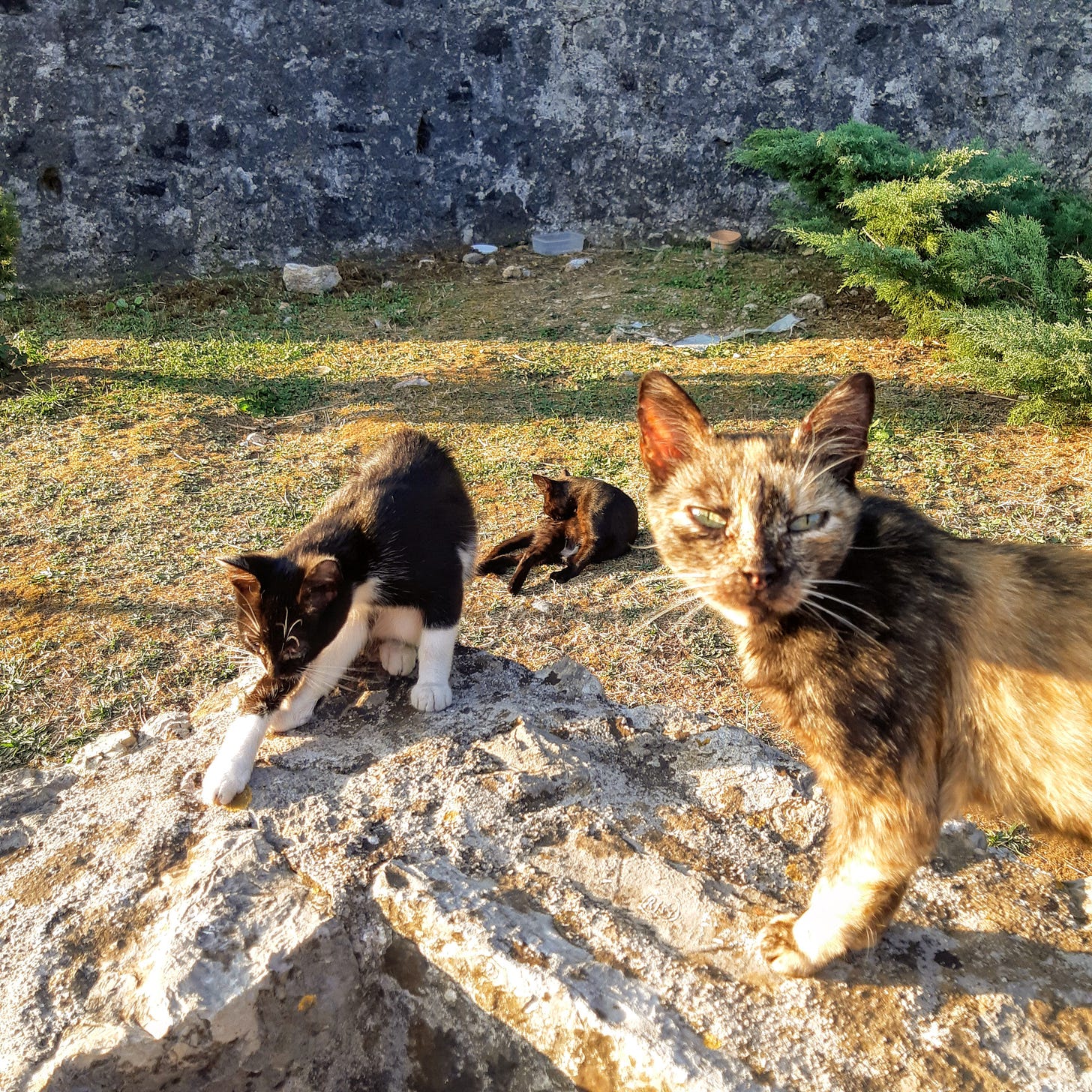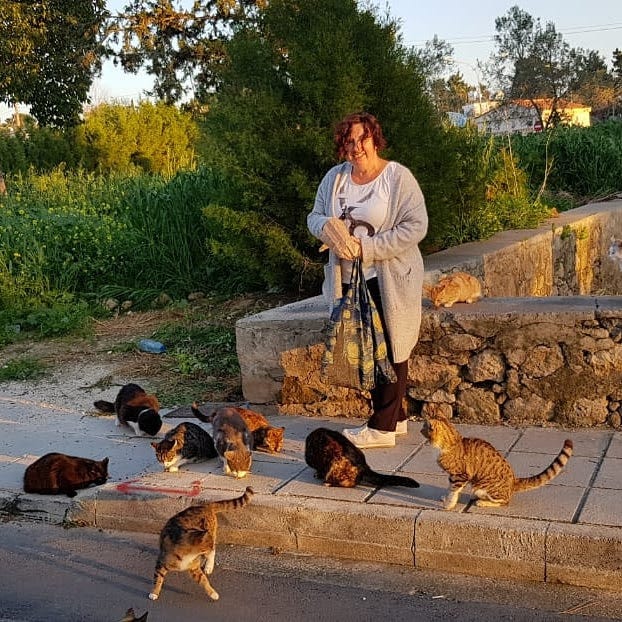I’ve read Annie Dillard reminisce about her childhood in Pittsburgh:
…I used to take a precious penny of my own and hide it for someone else to find…I always “hid” the penny along the same stretch of sidewalk up the street. I would cradle it at the roots of a sycamore, say, or in a hole left by a chipped-off piece of sidewalk. Then I would take a piece of chalk, and, starting at either end of hte block, draw huge arrows leading up to the penny from both directions. After I learned to write I labeled the arrows: SURPRISE AHEAD or MONEY THIS WAY. (Annie Dillard, Pilgrim at Tinker Creek)
I’ve come to think of Dillard’s Pilgrim at Tinker Creek as her adult iteration of those scatterred pennies. This book is not a one-and-done. So many copies of this book are floating around in the world, and whenever they show up on my path I feel the compulsion to pick it up and take it home. It happened last week, as I walked past a tiny free library in my final hours of my cat sit in Connecticut.
This current two-week sit in Washington, D.C. has turned into an exercise in the old adage “penny wise, pound foolish.” I’ll spare you the details, except to say that getting here from Connecticut cost a lot more than I’d budgeted for, which leaves me with minimal mad money for sightseeing and makes me a little cranky about my decision-making skills.
“If you were my daughter,” a pet owner once said to me, “I’d want to know you were planning for your retirement.” Aside from breaching my personal boundaries, she was making inaccurate assumptions about the financial hand life has dealt me. Petsitting and travel is not a luxury I enjoy at the expense of my savings; it is a piece of the survival puzzle. Yes, it’s improving my quality of life well beyond the money I’m paying to do it. But that’s what can happen when you negotiate well with your circumstances.
In fairness to the great cosmic dealer of hands and all my fellow players of the game, I recognize my privilege as a white, able-bodied woman of a certain IQ. And I’m learning to be compassionate toward myself for the choices I’ve made in times when I could see no ideal options. I’m also proud to have achieved a few things that seem to come easier to people who enjoy other kinds of privilege.
It took me two attempts to get my undergrad degree. I can think of a few reasons why I failed a semester and gave up on my first try, but I think the prevailing one was that, as the first in my family to attend a university, I didn’t know what I didn’t know. I didn’t know how to ask for help because I didn’t know what I was missing. I didn’t know it would be okay to ask for help.
My second attempt was about two decades later. Some of my study buddies had been born the same year I’d started university the first time. The decision to leave my full-time job to pursue an arts degree felt foolhardy, but I believed in my decision with the desperation of a drowning person grasping the only liferaft in sight. I remember now, during that time, I made a rule for myself that I would always bend to pick up any coin I found. It was my commitment to Providence: I will always accept the help on offer, no matter how small.
Some of my earliest house sits were borne of financial necessity. Before I started travelling, I did house sitting to get through my second year of grad school. I did house sitting another year while I was between apartments and trying to build a freelancing career. Depending on the mood I’m in, my life of travel can feel like an incredible privilege or like glorified homelessness.

In her thing with the pennies, Annie Dillard offers me a system I can get behind. She suggests we “cultivate a healthy poverty and simplicity, so that finding a penny will literally make your day.” I want a healthy poverty that doesn’t need the approval of a pet owner whose daughter I’m content not to be. With a spirit of simplicity, even if all my sightseeing cash gets spent on planes, trains, and taxis this month, I can still appreciate the little things I’ve never seen before: the sultry veranda with its ceiling fan, the glimmer of fireflies, the easy-come-easy-go of magnolia blossoms.
Sometimes, when I can pull together the funds, I stay in a holiday rental in a place I want to visit. I’ve noticed, when I’m not obliged to look after a pet, I can always find a scattered neighbourhood stray. My favourite towns have a surfeit of feral cats willing to perform companionship in exchange for a packet of food. Sometimes I gain the trust of a cat and it gets close enough to me that I can catch a bit of that purring motor that works on me like a soothing massage. Are these hungry kitties my own personal pennies? Are my kibble offerings their found coins?





